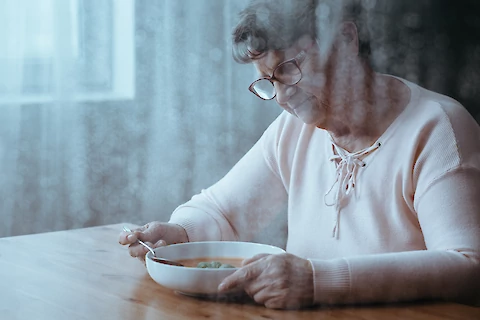
Caring for our senior loved ones often involves navigating a complex maze of physical and mental health challenges. One often overlooked concern is the prevalence of eating disorders in the elderly population. It's vital to be aware of the signs and symptoms of eating disorders in seniors while understanding the unique challenges they face and the importance of early detection. Caregivers require the necessary knowledge to spot these signs and approach the topic with sensitivity. It's a crucial step in ensuring the health and well-being of our elderly loved ones.
Eating Disorders in Seniors
Eating disorders are complex mental health conditions that involve irregular eating habits and severe distress about physical shape or weight. In seniors, these disorders may stem from longstanding issues dating back to youth or adulthood or emerge for the first time in later life. They face unique challenges, such as medical conditions, social isolation, and bereavement, which can exacerbate the onset and severity of these disorders.
Importance of Early Detection
Spotting eating disorders early can significantly improve treatment outcomes and prevent serious health complications. As eating disorders can often go unnoticed in seniors, there's a critical role for caregivers to play. By identifying the signs and symptoms of these disorders quickly, caregivers can help their loved ones get the necessary help promptly.
Signs and Symptoms of Eating Disorders in Seniors
Recognizing an eating disorder in seniors can be difficult as the signs are often subtle and can be mistaken for signs of aging or other health conditions. Physical signs like weight fluctuation, lethargy, digestive issues, and dental problems could hint toward an eating disorder. Emotional and behavioral changes may also be indicators, such as increased isolation, preoccupation with weight and food, or unfamiliar eating rituals.
Approaching the Topic With Sensitivity
Addressing concerns about an eating disorder with a senior loved one requires careful handling. It's crucial to approach the topic with empathy and respect, recognizing the inner turmoil they may be experiencing. Avoid placing blame, and focus on expressing concern for their health. Starting with a simple open-ended question such as "How have you been feeling about food recently?" can help open up the conversation in a non-threatening manner.
Seeking Professional Help
If you suspect your loved one has an eating disorder, encourage them to seek help from healthcare professionals. This can range from their primary care physician, who can assess their physical health, to mental health professionals like psychologists or psychiatrists. Remember, it's important to respect their autonomy and feelings during this time.
At Senior Helpers Greater OKC, we understand the complexities of caring for seniors with eating disorders. Our compassionate and professional caregivers are trained to spot the signs and provide the right kind of support, ensuring your loved one's well-being and quality of life.
Connect With Senior Helpers Greater OKC
Watching our senior loved ones struggle with eating disorders can be profoundly distressing. However, with early detection, sensitive communication, and the right professional help, there is hope for recovery and improved quality of life. If you're in Oklahoma City, Edmond, or Norman and need support in providing care for senior loved ones, contact us at Senior Helpers Greater OKC. We're here to offer our assistance and expertise to help enhance the lives of our seniors.